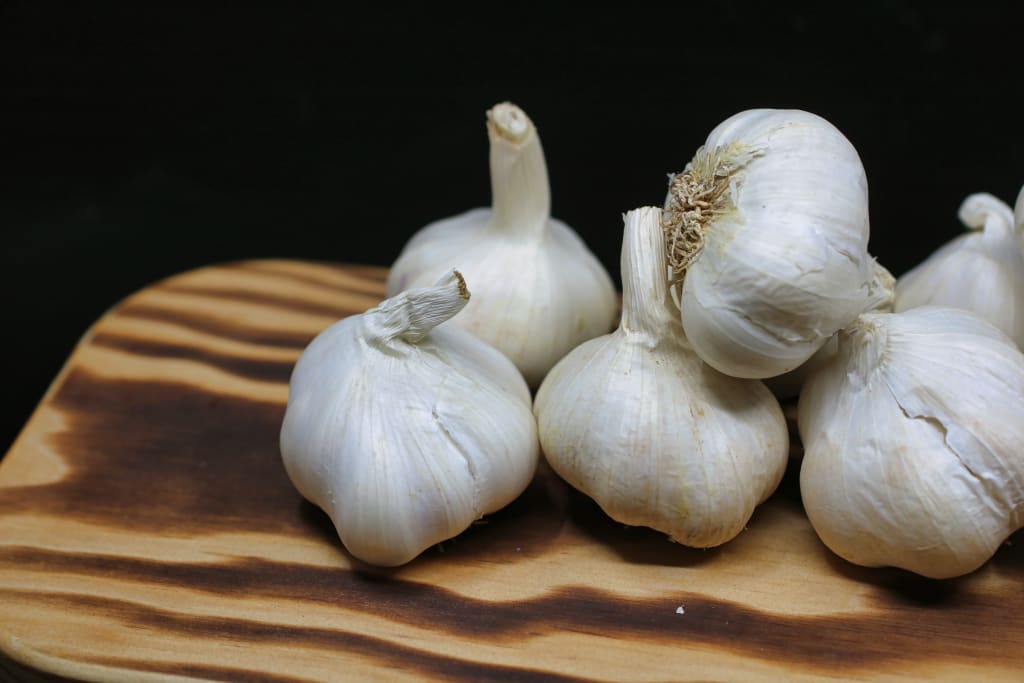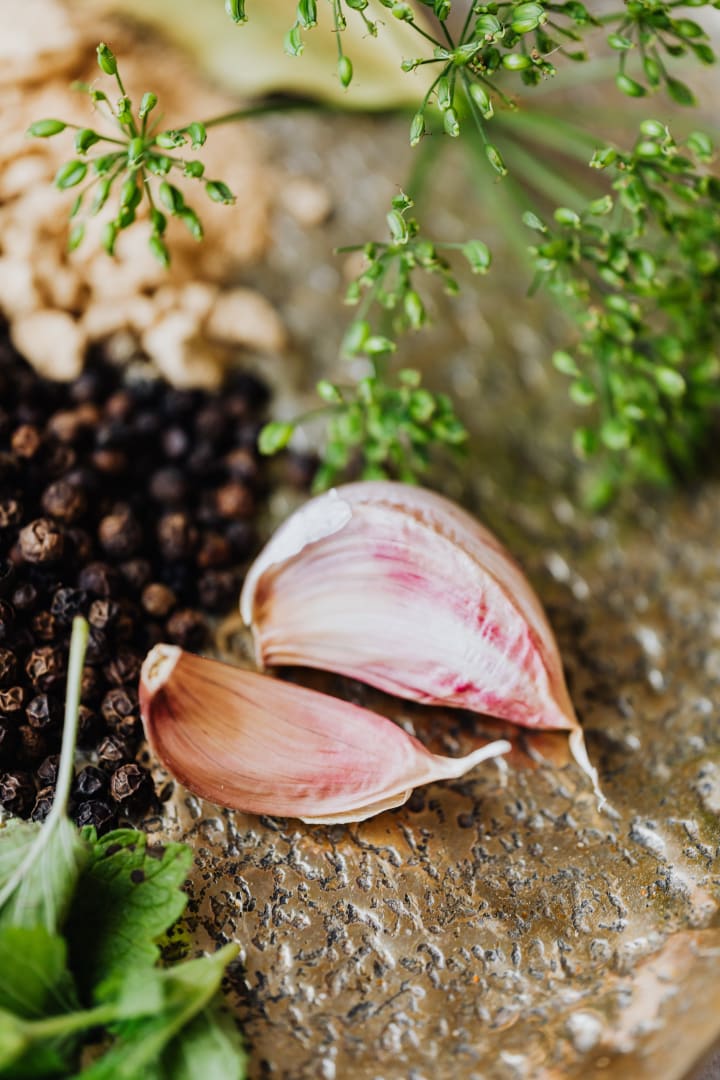Discover The Potential Benefit Of Garlic For A Range Of Healthy Concern
benefits of garlic

For thousands of years, garlic, scientifically known as Allium sativum, has been renowned for its numerous health benefits. Not only is it a common ingredient in culinary traditions worldwide, but it also has significant importance in traditional medicine because of its potent medicinal properties. Garlic is renowned for its unique aroma and flavor, and is considered a superfood that can enhance overall health and prevent a range of illnesses.
In addition to its culinary uses, garlic contains a variety of health-promoting compounds that are responsible for its many benefits. This food item is rich in essential nutrients like vitamins C and B6, manganese, selenium, and fiber. The rich content of sulfur compounds, including allicin, is responsible for many of the therapeutic effects of garlic, making it a powerful ingredient.
This article will delve into the numerous benefits that garlic provides. Garlic is a remarkable natural ingredient that offers a range of health benefits, including supporting cardiovascular health, boosting the immune system, aiding digestion, and combating infections. Let us explore the remarkable properties of garlic and discover the numerous ways in which it can enhance our overall well-being and quality of life.
10 BENEFITS OF CONSUMING GARLIC
Boosts the immune system
The immune-boosting properties of garlic have been acknowledged for a long time. Garlic comprises of different compounds, among them is allicin, which is produced when the garlic is crushed or chopped. Allicin is renowned for its antimicrobial and antiviral properties, which can aid the body in combating infections.
The substance comprises of compounds that can hinder the growth and duplication of microorganisms, thereby exhibiting efficacy against a broad spectrum of pathogens. Preventing and treating common respiratory infections such as cold and flu can be particularly beneficial.
Garlic has the ability to enhance the activity of specific immune cells, including macrophages and lymphocytes. These cells are essential in identifying and eliminating foreign invaders such as bacteria, viruses, and abnormal cells.
2. Antioxidant effects
Antioxidants are substances that can prevent or reduce oxidative stress. This stress happens when there is an imbalance between free radicals and the body’s natural antioxidant defenses. Various chronic diseases and aging processes are associated with oxidative stress. The antioxidant properties of garlic can aid in fighting oxidative stress and enhancing overall health.
Garlic contains various sulfur compounds, including diallyl disulfide and S-allyl cysteine, in addition to allicin. These compounds have antioxidant properties. Garlic contains compounds that contribute to its overall antioxidant activity.

3.Heart health support
For centuries, garlic has been acknowledged for its cardiovascular benefits. Garlic has been found to have potential benefits for heart health.
Garlic contains active compounds like allicin and sulfur compounds that aid in the relaxation of blood vessels. This leads to better blood flow and reduced blood pressure levels.
Studies have shown that garlic can effectively reduce LDL cholesterol and triglyceride levels, while simultaneously increasing HDL cholesterol, which is commonly referred to as “good” cholesterol.
Garlic is known to help maintain healthy blood flow and reduce the risk of cardiovascular events by inhibiting platelet aggregation.
4. Anti-inflammatory properties
The body naturally responds with inflammation to safeguard itself from injury, infection, or harmful substances. Chronic inflammation has been linked to the onset of several diseases, such as cardiovascular disease, arthritis, and specific types of cancer. Garlic is known to contain compounds that have anti-inflammatory properties, which can potentially provide various health benefits and contribute to overall well-being.
Research indicates that extracts of garlic may be effective in reducing the production of inflammatory compounds in the joints, which could potentially alleviate symptoms such as pain, swelling, and stiffness that are commonly associated with arthritis.
The anti-inflammatory properties of garlic can potentially alleviate symptoms and improve respiratory health.
5. Antibacterial and antiviral effects
Allicin has the ability to hinder the formation of bacterial cell walls by inhibiting specific enzymes that are involved in their creation. The disruption of the cell wall weakens the bacteria, thereby increasing their susceptibility to the immune system or other antimicrobial agents.
Garlic contains allicin and other compounds that possess direct antimicrobial effects against bacteria. Antibiotics have the ability to interfere with bacterial DNA and protein synthesis, disrupt the function of the cell membrane, and induce oxidative stress. These actions ultimately result in the death of bacterial cells.
6. Cancer prevention
Allicin has the ability to hinder the formation of bacterial cell walls by inhibiting specific enzymes that are involved in their creation. The disruption of the cell wall weakens the bacteria, thereby increasing their susceptibility to the immune system or other antimicrobial agents.
Garlic contains allicin and other compounds that possess direct antimicrobial effects against bacteria. Antibiotics have the ability to interfere with bacterial DNA and protein synthesis, disrupt the function of the cell membrane, and induce oxidative stress. These actions ultimately result in the death of bacterial cells.
7. Improved digestion
Traditional medicine has long made use of garlic for its medical benefits, which include aiding digestion.
Allicin, one of the components found in garlic, has been shown to increase the synthesis of amylase, lipase, and protease, all of which aid in digestion. The digestion process is aided by these enzymes, which specifically break down carbs, lipids, and proteins.
Garlic has been shown to increase gastric acid production, which aids with digestion. Having enough stomach acid is important for breaking down food and absorbing its nutrients.
8. Detoxification support
Garlic is a rich source of compounds such as allicin, which possess powerful antioxidant properties. Antioxidants aid in the neutralization of harmful free radicals within the body, thereby reducing oxidative stress and promoting detoxification processes.
Studies have demonstrated that garlic can enhance liver function by stimulating the generation of enzymes that facilitate detoxification processes. Additionally, it may provide protection to the liver against toxic damage.

9. Respiratory health
Garlic is known to contain compounds such as allicin, which possess antimicrobial properties. It can be helpful in combating a range of pathogens, such as bacteria, viruses, and fungi, which are known to cause respiratory infections such as the common cold, flu, and pneumonia.
Garlic possesses immune-boosting properties that can augment your body’s innate defense mechanisms. Having a robust immune system is crucial in effectively combating respiratory infections.
10. Improved skin health
Garlic is renowned for its strong aroma and culinary uses, but it also has the potential to offer several benefits for skin health.
It can be helpful in fighting different types of skin infections caused by bacteria, viruses, and fungi. Topically applying crushed garlic or garlic oil on the affected areas can help reduce bacterial growth and promote healing.
Using a garlic paste or rubbing a sliced garlic clove on areas prone to acne may help relieve acne symptoms and improve the overall clarity of the skin.
HOW TO USE GARLIC
The amount of garlic you need to get these benefits depends on what kind of garlic you use. Here are some suggestions for how much to take based on the search results:
• Garlic powder that has been dried: 0.4 to 1.2 g per day
• 2–5 mg of garlic oil per day
• Garlic extract: 300–1,000 mg per day, up to 2,500 mg per day
• Extract of aged garlic: 2,400 mg per day
• 4 g (one to two cloves) of fresh, raw garlic per day.
About the Creator
Abby blasius
I am a passionate content creator with a strong focus on health and wellness. While my educational background lies in a Bachelor of Accounting and Finance, it is my innate desire to help people feel good about themselves in mind, body&soul






Comments
There are no comments for this story
Be the first to respond and start the conversation.